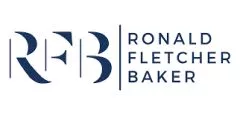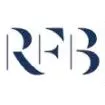- within Finance and Banking topic(s)
- in United States
Finding yourself suddenly cut off from your bank account or funds without warning can be both distressing and confusing. This article aims to outline some of the potential reasons behind such occurrences and offer guidance on how to address them.
Why Has My Account Been Frozen?
Banks may restrict access to your account or funds for various reasons. Below are some common explanations:
- Your bank or a different bank may suspect wrongdoing
and need time to investigate the issues;
Under the Proceeds of Crime Act 2002, banks are allowed an initial period of 7 business days to investigate the account and submit a report to the National Crime Agency (NCA). Depending on the NCA's response, this timeframe may be extended, which could lead to continued restrictions on the account. Often, as per Section 333A of POCA, banks are prohibited from revealing the reason for the account freeze or providing any indication as to when the matter will be resolved. - Someone may have obtained a Court order against you and
sent this to your bank. This could be someone who is owed money or
a government authority, such as the police, HMRC, or NCA, who may
be investigating you or an individual connected to your
account.;
Creditors can apply for a court order to recover debts. Once this order is issued, your bank is required to freeze funds until the debt is settled. Furthermore, as discussed in our previous article, "Account Freezing Orders: What Can You Do?", investigating authorities may seek an Account Freezing Order, allowing them to withhold or recover your funds. - Your funds or account may have a connection with
someone on the fraud list;
Banks maintain internal and external lists of individuals suspected of involvement in fraud. If your name is added to such a list, your funds may be frozen, and your account could be closed. This may also lead to you losing access to other financial products. Additionally, if you receive funds from someone on a fraud list, your account could face similar restrictions. - Your funds or account may have a connection with
someone on the sanction list.
The Office of Financial Sanctions Implementation (OFSI) enforces the UK's sanctions regime, which requires banks to freeze assets linked to sanctioned individuals or entities. If your name or someone you are associated with appears on a sanctions list, your account could be affected.
While there are legitimate reasons for account restrictions, mistakes can occur. Misinterpretations of facts or laws, particularly in sanction-related matters, often result in unjustified freezes. For example, individuals with connections to sanctioned countries, such as Iran, Syria, or Cuba, can be wrongly impacted.
At Ronald Fletcher Baker LLP, the litigation team have successfully handled hundreds of cases involving bank account restrictions and closures, frequently securing compensation for our clients.
What Can You Do?
Although it's not always possible to prevent a bank account restriction, there are steps you can take to reduce the risk:
Keep Your Bank Informed
Maintaining clear communication with your bank is crucial, especially for straightforward transactions. For example, if you anticipate an unusual transfer, it's wise to notify your bank in writing beforehand. However, if the transaction involves a sanctioned country, communicating directly with the bank could lead to complications. In such cases, incorrect information could result in serious consequences, as providing false information to a bank is a criminal offence. It's essential to communicate clearly and accurately through the proper channels. As noted in our popular article, "The Complexities of Transferring Funds from Iran to the UK", we have helped many clients navigate this process by obtaining the necessary bank approvals.
Keep Records of Your Transactions
When receiving funds, it is your responsibility to prove that the source is legitimate. Be sure to retain all related documents, including text messages with payors and written communications with your bank. These records will help demonstrate that your funds are lawful.
Seek Legal Advice Early
Obtaining legal advice at an early stage is crucial. In some instances, directly communicating with the bank can worsen the situation and prolong the restriction.
The content of this article is intended to provide a general guide to the subject matter. Specialist advice should be sought about your specific circumstances.


